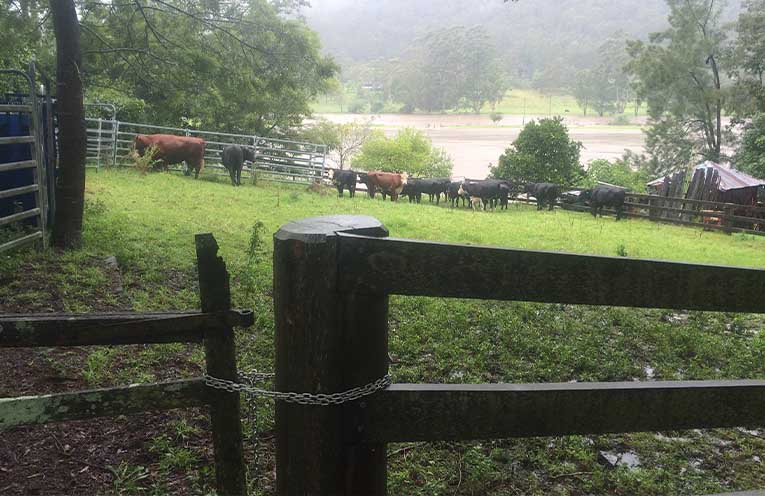
WITH areas of the Hunter and Mid North Coast impacted by minor flooding over the weekend, Hunter Local Land Services (LLS) is reminding landholders that preparation is essential, especially for those living on floodplains.
“Though Tropical Cyclone Alfred brought some intense weather, the region was largely spared from major disruption, however this event should serve as a timely reminder of the need to prepare for potential floods,” said Hunter LLS General Manager Brett Miners.
 Advertise with News of The Area today.
Advertise with News of The Area today.It’s worth it for your business.
Message us.
Phone us – (02) 4981 8882.
Email us – media@newsofthearea.com.au
“When you live on a floodplain, having a flood plan just makes good farming sense.
“Planning will protect your home, property, and business.
“Most importantly, it helps ensure the safety of your livestock and pets,” he said.
Having a flood plan can significantly reduce the impact of floods on your farm.
By knowing what to do and when, damage and losses can be minimised, ultimately helping landholders recover more quickly.
“Flooding can cause significant damage – it costs money to repair fences, clean up properties, and feed livestock,” Brett said.
“The reality is that it’s far cheaper to plan ahead and be prepared than to face the high costs of repairs or lost production time.”
To help landholders prepare for future floods, Local Land Services has developed a comprehensive Farm Flood Readiness Kit.
The user-friendly resource provides a range of tools and templates to help landholders plan for floods.
It includes a flood readiness checklist, a flood plan template, and advice on how to access emergency information, such as BOM and SES warnings.
“Your flood plan doesn’t need to be complicated,” Brett said.
“In fact, it should be as simple as possible so that if you’re away, someone else can implement it on your behalf.”
The kit was developed in response to the 2015 Hunter region floods in consultation with local farmers.
“Every flood is different,” Brett said.
“It’s important to plan for all potential risks and impacts. By being prepared, you can get back to business faster and reduce the overall damage.
“It’s important to consider all a complete range of items on your farm – have you got sufficient food, clean water, battery radio, generator, fuel, first aid kit and emergency contacts if your property is isolated?
“Think about your fuel and chemicals – where can you store them so they are off the ground and can’t be washed away and once they are stored appropriately, keep the shed or storage area securely locked.”
An important factor in preparing a flood plan is ensuring your livestock and horses are safe during a flood event. Prior planning can ensure that you have a designated high ground area for animals, access to fresh water and sufficient fodder. In addition, familiarity with the safe zones can minimise stress and damage to your livestock.
Landholders should also consider having alternative relocation sites, especially in areas prone to prolonged flooding, and ensure the high ground areas are clear of debris and offer protection from the elements.
For more information on flood preparation and to download the Farm Flood Readiness Kit, visit https://www.lls.nsw.gov.au/floods/flood-preparation or call Local Land Services on 1300 795 299.
